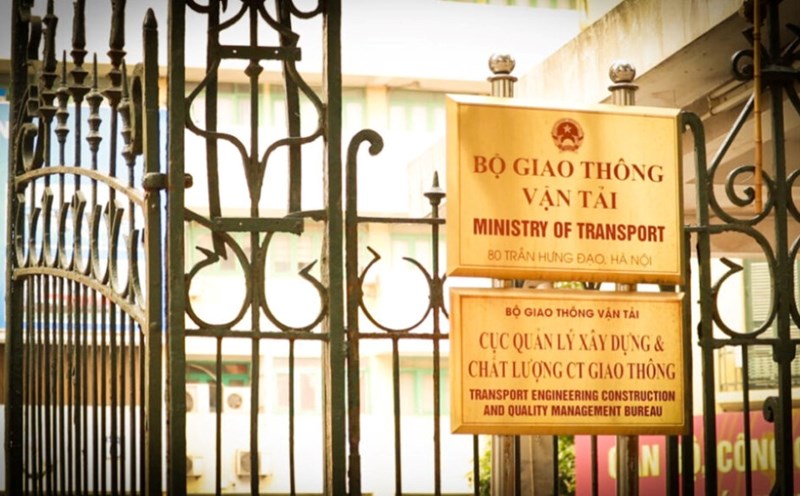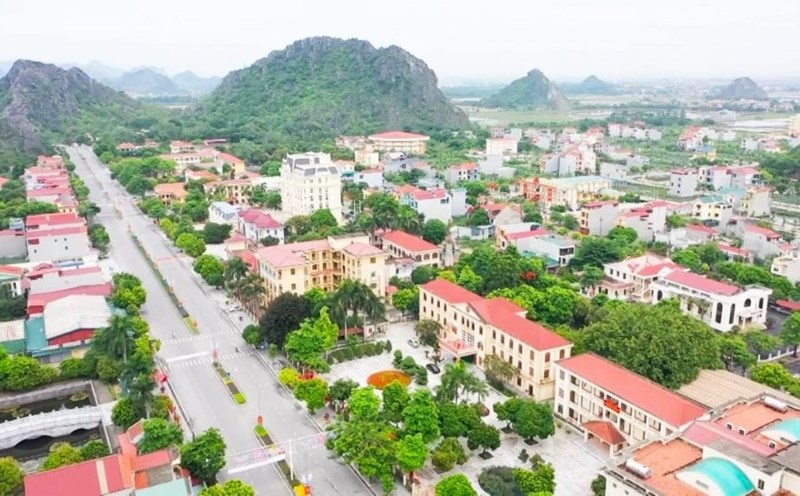As of 11:30 a.m. today (November 28), the domestic coffee market continued to break out, with an average increase of 3,500 VND/kg, causing prices to fluctuate between 127,000 - 127,800 VND/kg. The average coffee purchase price in the Central Highlands provinces is 127,500 VND/kg.
Lam Dong is still the province with the lowest coffee purchasing price in the Central Highlands. Compared to yesterday's closing price, coffee prices in this region stood at 127,000 VND/kg, although the strongest increase was 3,500 VND/kg.
In the same direction, the coffee purchase price in Gia Lai province is currently at 127,300 VND/kg, an increase of 100 VND less than that in Lam Dong province.
Dak Nong province is holding its position with the highest coffee purchasing price in the country, increasing by nearly 4,000 VND/kg, setting the mark at 127,800 VND/kg.
Following is Dak Lak province with an average increase of 3,500 VND/kg, currently listed at 127,500 VND/kg.
Domestic coffee prices are climbing. After a week of continuous upward adjustments, the coffee purchase price has increased by more than VND10,000/kg, setting a new peak.
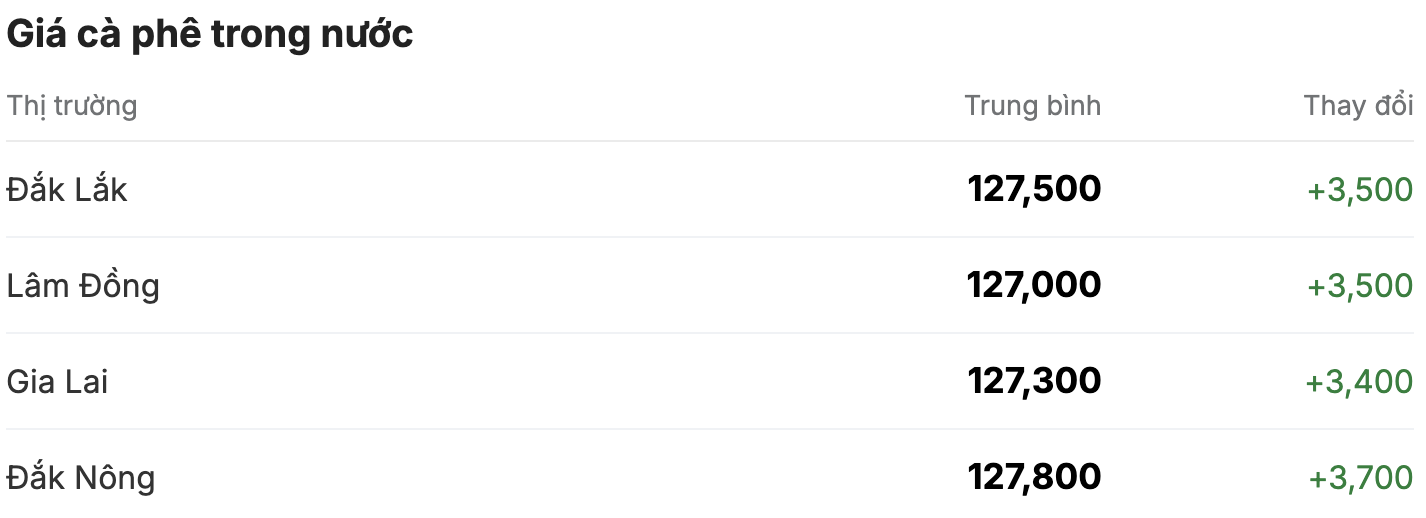
On the London and New York exchanges, the coffee market increased sharply after a day of stagnation in all terms. The contract for delivery in January 2025 increased by nearly 7% (equivalent to 358 USD/ton), standing at 5,533 USD/ton. The contract for delivery in March 2025 was listed at 5,496 USD/ton, up 7.47% (equivalent to 382 USD/ton).
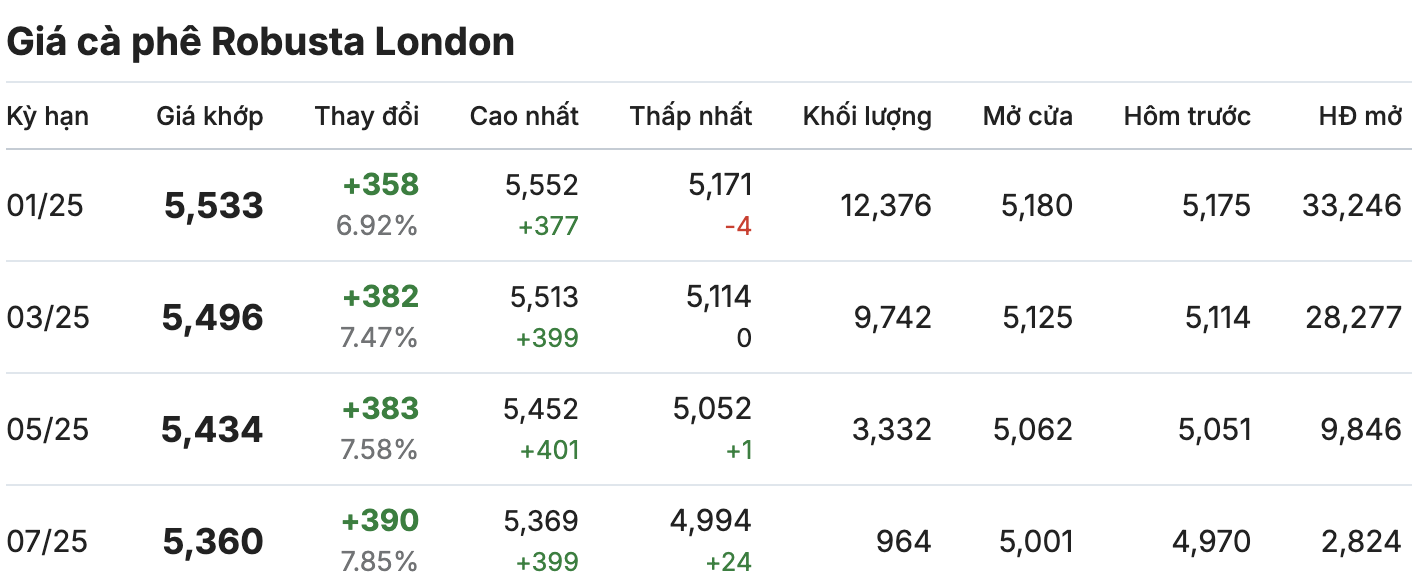
Similarly, developments in the New York Arabica coffee market for December 2024 and March 2025 delivery terms increased by over 4.50%, currently standing at 323.05 cents/lb and 320.70 cents/lb.
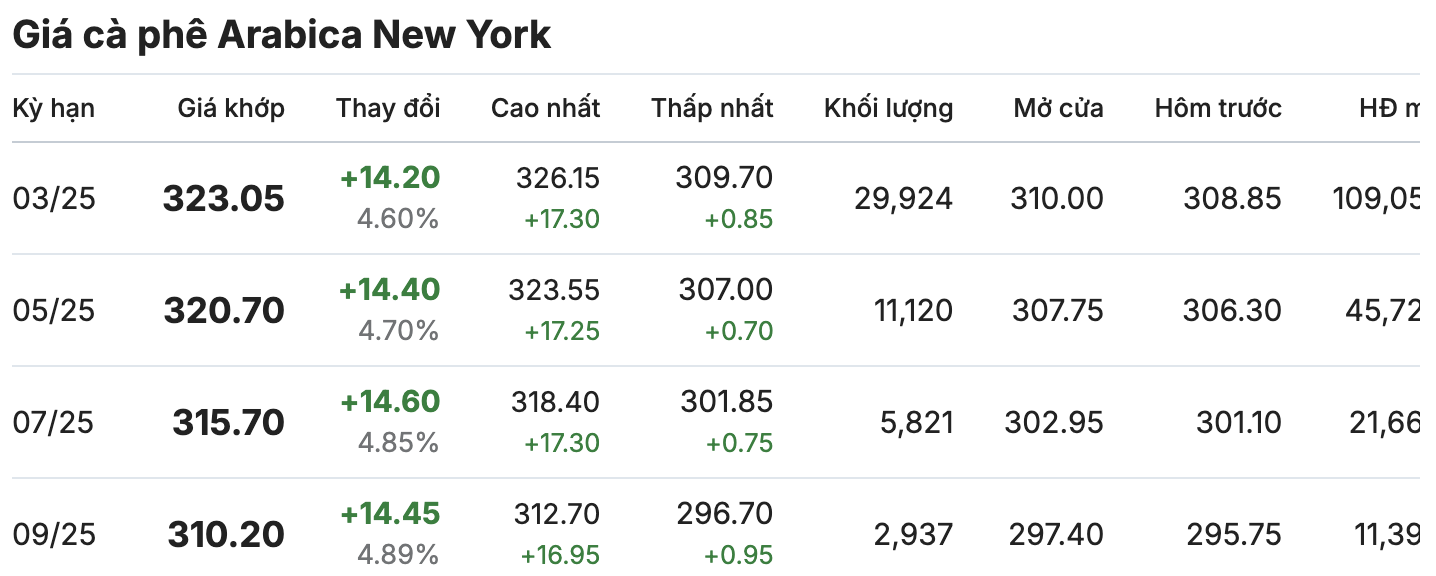
The strong upward trend also continues in the world coffee price market, reflecting concerns about future supply. Arabica coffee prices have risen to a 27-year high, while Robusta prices have also followed suit, approaching the threshold of 5,600 USD/ton.
The US Department of Agriculture (USDA) Brazil office estimates the country’s coffee production in the 2024-2025 crop year at 66.4 million 60-kg bags, down 3.5 million bags from the previous forecast. The total output decline is mainly due to a decline in Arabica coffee as the growing region of this crop faces harsh weather conditions during the bean development and flowering stages.





